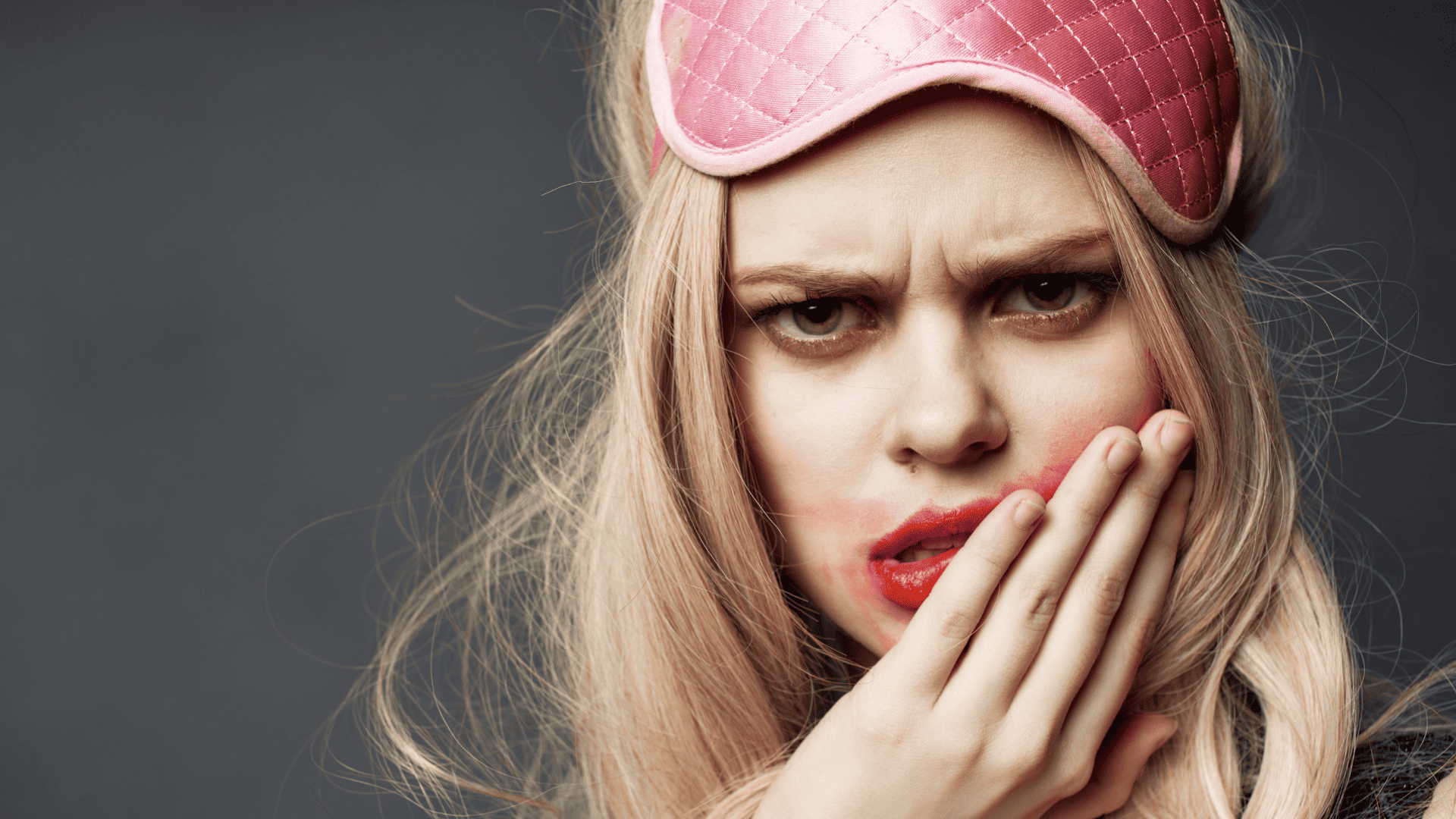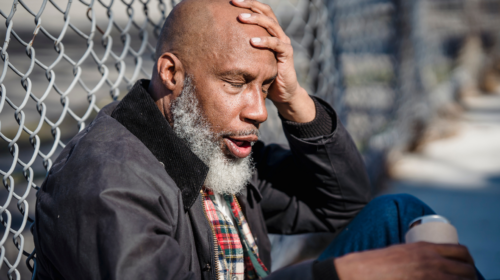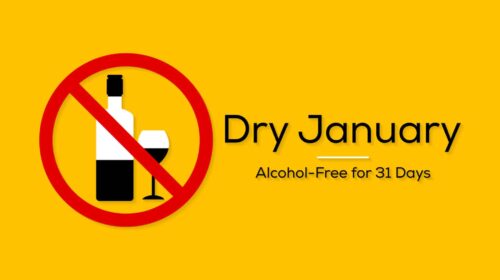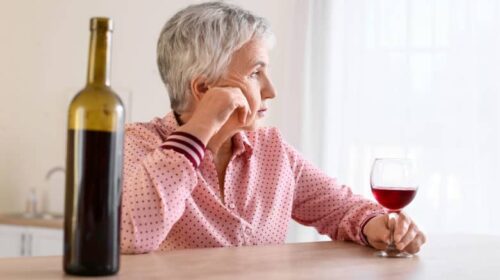Both Trazodone and alcohol may make you drowsy and are sometimes taken together to increase their effectiveness as a sleep aid. Even though alcohol also makes you drowsy, it actually disrupts restful sleep patterns. Taking trazodone and alcohol together does not guarantee better sleep, but it can increase the chance of potentially dangerous side effects like respiratory depression.
What is Trazodone?
Trazodone is an FDA-approved drug for the treatment of major depressive disorder.[1] It’s also used off-label as a sleep aid given to people who are in alcohol recovery.
Trazodone is primarily classified as a SARI (Serotonin Antagonist and Reuptake Inhibitor). The hormone serotonin is responsible for feelings of cheerfulness and positivity but also for wakefulness. Trazodone primarily blocks certain serotonin receptors and inhibits serotonin reuptake, affecting mood and sleep.
Research suggests that even though it’s effective as a sleep aid, Trazodone might impede improvements in alcohol consumption for people in alcohol recovery.[2]
What Happens When You Take Trazadone?
Trazodone is available primarily as an oral administration medicine. It comes in immediate-release (IR) and extended-release (ER) tablets, oral drops, and injectable solutions.
Trazodone inhibits serotonin reuptake and acts as an antagonist on the 5-HT2A receptors, among other effects. This has a twofold effect:[3]
- Serotonin can’t be reabsorbed into the cells that release it, and more serotonin fills the synapses between neurons. This means your mood and any generalized anxiety could improve.
The overall activity of arousal hormones in the brain, such as dopamine and serotonin, will decrease, which will have a hypnotic effect. - Trazodone is not approved for use by the FDA to treat insomnia. However, research has shown that the 100mg dosage is most effective in improving sleep.[4]
Since it was designed to treat major depression rather than insomnia due to alcohol recovery, there is not extensive research into trazodone’s effect on sobriety for those recovering from alcohol addiction.
Side Effects of Taking Trazodone
The most common side effects of trazodone are headaches, fatigue, dizziness, and drowsiness.[5] Other risks include dry mouth, low blood pressure, fast and chaotic heartbeats, prolonged penile erection, visual hallucinations, and increased suicidal thoughts. While many side effects may resolve upon discontinuing trazodone, it is not guaranteed that all adverse effects will cease, and some may require medical attention.
What Happens When You Drink Alcohol?

Alcohol is a fermented drink where yeast converts sugar into ethanol. Alcohol is a known human carcinogen, and even moderate drinking carries many negative health effects.[6]
Alcohol is a central nervous system depressant. It initially presents as a stimulant, but it always ends as a depressant. Initially, people who drink alcohol experience a rush of dopamine followed by a depression of their neuronal excitability.[7]
Ethanol binds to GABA receptors in the brain and enhances the inhibitory effects of GABA, but it does not necessarily increase the production of hormones responsible for healthy inhibitions. In turn, this leads to drowsiness.[8]
However, even though alcohol can make you sleepy, it disrupts healthy sleep patterns so that your sleep will be less restful.[9]
Side Effects of Drinking Alcohol
Alcohol has numerous side effects, but some of the most obvious are:[10]
- Dizziness
- Slow reflexes
- Poor judgment
- Stumbling
- Slurred speech
- Amnesia
- Vomiting
- Accidental injury
- Drowsiness
- Headaches
- Hangover
Alcohol impairs your judgment, and this quality can intensify the negative aspects of its many side effects. If you use alcohol in a dangerous environment, such as operating a motor vehicle, the negative consequences of alcohol’s side effects, like slowed reflexes and poor judgment, are multiplied.
The Consequence of Drinking Alcohol While Taking Trazodone
There are two main drawbacks to drinking alcohol while taking trazodone.
While you may be taking trazodone to improve your sleep, the effects of alcohol could be disrupting restful sleep patterns. Furthermore, drinking alcohol to help you go to sleep could complicate your recovery from alcohol use disorder.
Both alcohol and trazodone have a depressant-like effect, but they act differently on neurotransmitters. Alcohol primarily enhances the inhibitory effects of GABA and inhibits the excitatory effects of glutamate, while trazodone primarily acts on serotonin and other neurotransmitters related to arousal. Taking a combination of the two will multiply the effects of sedation that accompany either one. Sedation itself is accompanied by respiratory depression, and if your breathing rate gets low enough, it could be dangerous.
Respiratory depression could lead to unconsciousness, coma, or even death.
For reasons we do not entirely understand, Trazodone might impede improvements in alcohol consumption during recovery.[11] In one double-blind, placebo-controlled trial, the group given trazodone had less improvement in the proportion of abstinent days and more alcoholic drinks per day than the control group once the medication was concluded.
Treatment for Alcohol Use Disorder
Alcohol use disorder (AUD) can rob you of your sleep, but more importantly, it can rob you of your freedom. Take back your freedom by seeking qualified addiction treatment for AUD today.
There are compassionate treatment centers that offer robust rehab programs and evidence-based therapies catered specifically to your individual needs, history, and lifestyle. One such treatment center is Recovery Unplugged.
With addiction treatment centers in Texas, Florida, Virginia, and Tennessee, Recovery Unplugged is within reasonable commuting distance of millions of Americans. They have an expert care team who wants to restore what addiction took away: Your ability to hope and heal.
Call their admissions today to see what they can do for you.
There is Still Hope for You
No matter how hopeless things may seem, there is a light at the end of the tunnel. Your addiction is not the end. You can choose to put an end to your addiction right now by seeking an accredited treatment facility that has the experience and expertise to handle your recovery with compassion, tact, dignity, purpose, and wisdom.
Don’t spend another second not in control of your life. You are precious. Contact someone you trust who can help you start the recovery journey.

























